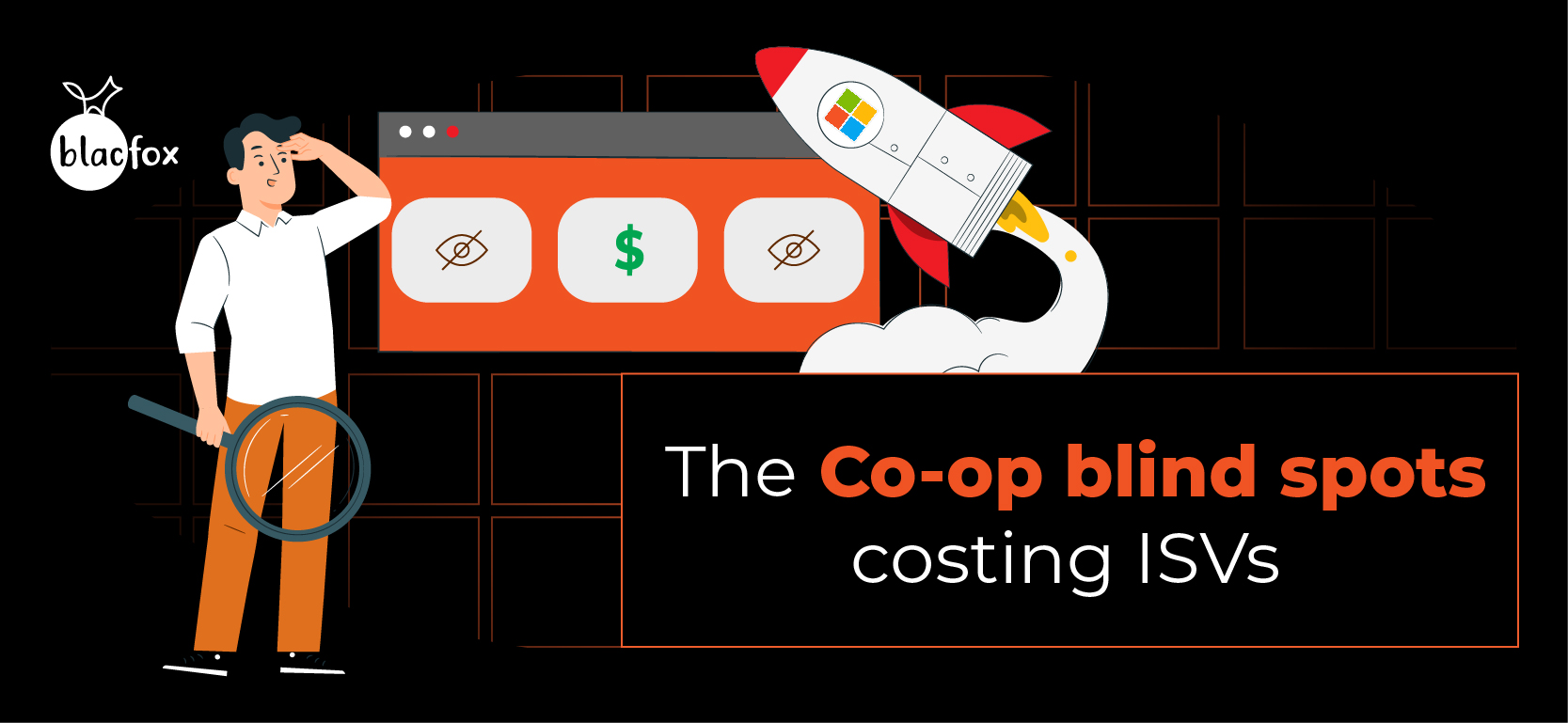
Introduction
If you’re developing solutions that run on Microsoft infrastructure or integrate with its ecosystem, you’re probably earning Co-op funds. And if you’re not using them, you’re leaving money behind.
Each year, Microsoft allocates Co-op funding to eligible partners, including ISVs. It’s meant to help you generate leads, run campaigns, and gain traction. But many ISVs either don’t know they’re earning it or aren’t sure what they can claim.
If you’re participating in a qualifying Microsoft programme—like CSP, MCI, or transactable listings on Marketplace—you could be earning funds automatically based on your performance.
The problem is that many ISVs aren’t aware of what’s possible or think the process is too complex. That’s costing you leads, reach, and partner engagement.

Here’s what you could be doing with Co-op:
- Running a campaign to drive traffic to your Marketplace listing
- Promoting your solution to a key vertical through LinkedIn or paid search
- Creating a solution page or microsite that highlights your Microsoft integration
- Building a proof of concept to show how your product works
- Hosting a webinar with a partner
- Supporting internal sales incentives to drive adoption
- Using telemarketing to qualify leads
All eligible. All doable—without touching your core budget.

Even when ISVs know Co-op exists, a lot gets missed in the details. Here are some of the most common gaps:
1. Claiming ineligible expenses: ISVs often try to claim costs that aren’t covered—like Microsoft software, infrastructure, hardware, or packaging. Travel and general giveaways are also off the table.
2. Submitting incomplete or incorrect PoE: Proof of execution (PoE) must include exact documentation—like third-party invoices, screenshots, or published assets. If anything’s missing, the claim could be rejected.
3. Missing deadlines: There are two key dates per cycle: the claim submission deadline and the PoE approval deadline. Miss either, and the funds are gone:
- Claim Submission Deadline: February 15, 2026
- PoE Approval Deadline: March 31, 2026
4. Forgetting pre-approvals: Some activities (especially for Surface partners or printed material) require pre-approval. If you skip this step, your claim may be denied—regardless of eligibility.
5. Double-claiming or splitting claims incorrectly: Submitting the same expense across programmes or breaking it up into smaller claims can flag compliance issues. Microsoft tracks this closely.

Every ISV wants more reach, leads, and partner attention. But those things take investment. That’s what makes Co-op useful—it pays for the pieces most ISVs skip because they seem too expensive or time-consuming.
Letting your Co-op expire isn’t just losing budget. It’s losing:
- A shot at a new market
- Visibility with Microsoft sellers
- Proof points for your value
- Stronger partner relationships
If you’re earning Co-op and ignoring it, you’re losing out. Microsoft already gave you the budget. You just have to use it.
We know Co-op is a minefield of rules, fine print, and moving deadlines. That’s why we can help.
At Blacfox, we help Microsoft ISVs actually use the Co-op they’ve earned. You’ve already done the hard part: earning the funds. We just make sure they don’t go to waste.


Perfect piece of work you have done, this site is really cool with excellent info .